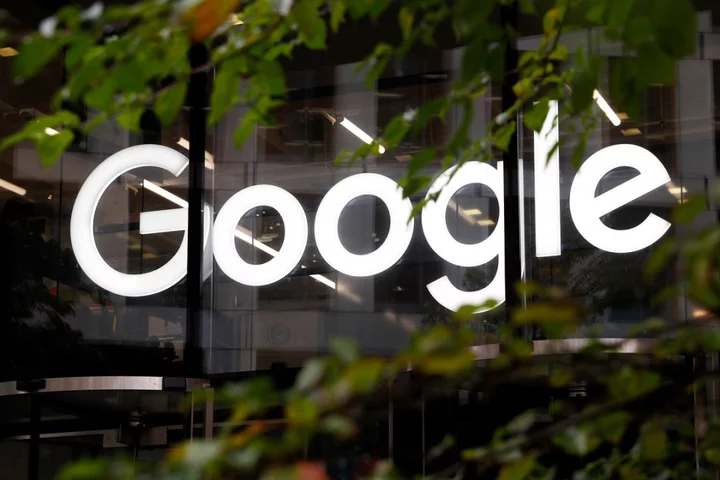Google’s Bard, its powerful AI chatbot, can now get into people’s emails and other Google services.
The tool has been linked with Google platforms such as Gmail, Maps and YouTube so that it can provide richer and more useful responses to queries, the company said.
Users can ask the chatbot to automate the work of scheduling meetings through Gmail, for instance.
Google launched Bard earlier this year, seemingly as a response to the huge success of other generative artificial intelligence platforms, such as ChatGPT. It offers many of the same features as that competitor, allowing users to chat in natural language and receive words and information in reply.
The company has now announced a major update to the program, called Bard Extensions, which will allow users to link other Google services to collaborate with Bard to provide a response to a prompt - for example, when asking Bard to help plan a holiday, users can ask Bard to get the dates that work for family members from Gmail, use Google Maps to get directions to the airport and find YouTube videos to watch about the best things to do at the destination.
It said the update made Bard “the most capable” version of the program so far and would help more people use the app to collaborate.
The tech giant said the update would have a strong focus on user privacy, with users required to actively give permission to Bard to access their Googleservices, and any content lifted would not be reviewable by a human unless the user specifically asked Bard to flag it for review.
In a further expansion of the chatbot, Google said it would now also enable users to double-check the responses they receive from Bard using a new “Google it” button, which will check the response against linked Google search results and highlight passages it is confident about the validity of, as well as those where it found differing results.
Some experts have raised concerns about the possible spread of misinformation within generative AI platforms, warning some information is being presented to users in an authoritative way when it may be based on inaccurate or outdated information used to train such chatbots.
A report by the UK’s Competition and Markets Authority (CMA) published on Monday which looked into the potential impact of the AI market noted that without proper guiding principles, people and businesses could be harmed through exposure to significant levels of misinformation and AI-enabled fraud.
In a blog post on the updates to Bard, Google‘s director for product management of Bard, Yury Pinsky, said: “One of the biggest benefits of Bard, an experiment to collaborate with generative AI, is that it can tailor its responses to exactly what you need.
“For instance, you could ask Bard to start a trip planning doc for you and your friends, draft up your online marketplace listing, or help explain a science topic to your kids. And now Bard is getting even better at customising its responses so you can easily bring your ideas to life.
“Today we’re launching Bard Extensions in English, a completely new way to interact and collaborate with Bard. With Extensions, Bard can find and show you relevant information from the Google tools you use every day - like Gmail, Docs, Drive, Maps, YouTube, and Google Flights and hotels - even when the information you need is across multiple apps and services.”
Elsewhere in the update, Google also confirmed that when a link to a Bard conversation is shared online, others will be able to click on that link and continue the same conversation themselves.
Read MoreBBC reviews Russell Brand’s time at corporation as YouTube demonetises content
Google announces huge breakthrough step in finding genes that cause disease
BBC removes some Russell Brand content as monetisation suspended on YouTube
Google Bard can now link to Gmail and other apps to help with responses
Long-form video content is here to stay, says YouTube UK boss
The most important tech trial in a generation is about to begin

